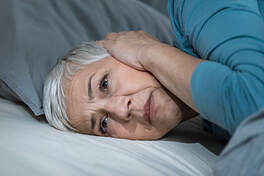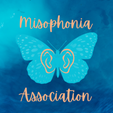misophonia & MISOKINESIA therapy
We provide world-class diagnostic and treatment services for children and adults adolescents suffering from Misophonia and Misokinesia.
|
We understand.
|
We can relate.
|
We can help.
|
|
Do certain "normal" sounds really bother you?
Chewing, pens clicking, dogs barking, mechanical rattles, and other daily noises...for those suffering from Misophonia sounds often perceived as background noise to others can seem incredibly heightened or cause an involuntary response of feeling anxious or even angry. Misophonia is a neurological disorder in which certain sounds can trigger emotional or “fight or flight” responses which seems extreme to others. It is still a poorly understood condition, but appears to be quite common in certain populations.
|
CONTACT US TODAY
|
What is Misophonia?
Misophonia is an intense physical and emotional reaction to common sounds, such as chewing, sniffing, coughing, or keyboard clicking. Those suffering from misophonia often feel extreme anger or disgust when they hear one of these trigger sounds. The mental health community has only recently begun to recognize this problem, with Marsha Johnson an audiologist first naming it in 1997. It has not yet been added as an official diagnosis in the DSM-V, which can make things confusing or frustrating for patients and clinicians trying to address it.
Misophonia is very common. As many as 1 in 5 people have some symptoms of it. Around 1% of the population has more severe symptoms that can greatly interfere with daily life. This means that millions of people around the world suffer from this distressing problem that didn’t even have a name until a few years ago!
Misophonia is an intense physical and emotional reaction to common sounds, such as chewing, sniffing, coughing, or keyboard clicking. Those suffering from misophonia often feel extreme anger or disgust when they hear one of these trigger sounds. The mental health community has only recently begun to recognize this problem, with Marsha Johnson an audiologist first naming it in 1997. It has not yet been added as an official diagnosis in the DSM-V, which can make things confusing or frustrating for patients and clinicians trying to address it.
Misophonia is very common. As many as 1 in 5 people have some symptoms of it. Around 1% of the population has more severe symptoms that can greatly interfere with daily life. This means that millions of people around the world suffer from this distressing problem that didn’t even have a name until a few years ago!
|
We’ve noticed that misophonia tends to occur more often in people who are highly intelligent and empathic. Misophonia also tends to co-occur in people suffering from other mental health concerns such as depression, anxiety, OCD, and ADHD. Many patients come to us for help with misophonia, but are also suffering from one of these other mental health conditions. In many cases, helping these other conditions makes you feel better overall, and this can help reduce the suffering that comes from having misophonia. In many cases, we help clients suffering from misophonia by helping them address these other problems. It can be very helpful!
|
A section of our clinical work is dedicated just to treating misophonia; |
We Can Relate To Your Suffering
For many patients, the mental suffering can be immense. Like living in a world where everyone but you seems ok with making horrible sounds! Imagine living in a world where it was seen as totally normal for people to scratch their fingernails on a chalkboard around you! For some, the trigger pain is so immense it is more like living in a world in which people were allowed to randomly hit you whenever they felt like it, and where you were seen as the problem for complaining.
Even though the suffering can be severe, we’ve noticed that many misophonia patients tend to be highly intelligent and conscientious, and are often reluctant to share how miserable they are even with family. They often suffer in silence, wondering what it wrong with them, and being afraid or embarrassed to get help.
An unusual feature of misophonia is that a trigger sound often begins in response to one person, usually someone close to the patient. And it can start suddenly, without warning. For instance, the patient might be suddenly triggered by the chewing sounds from a parent, but not from friends or other relatives. This can be very distressing and confusing for the person causing the trigger sounds. That person may understandably think that the person suffering from misophonia is just angry at them for some other reason, or perhaps just being "too sensitive."
For many patients, the mental suffering can be immense. Like living in a world where everyone but you seems ok with making horrible sounds! Imagine living in a world where it was seen as totally normal for people to scratch their fingernails on a chalkboard around you! For some, the trigger pain is so immense it is more like living in a world in which people were allowed to randomly hit you whenever they felt like it, and where you were seen as the problem for complaining.
Even though the suffering can be severe, we’ve noticed that many misophonia patients tend to be highly intelligent and conscientious, and are often reluctant to share how miserable they are even with family. They often suffer in silence, wondering what it wrong with them, and being afraid or embarrassed to get help.
An unusual feature of misophonia is that a trigger sound often begins in response to one person, usually someone close to the patient. And it can start suddenly, without warning. For instance, the patient might be suddenly triggered by the chewing sounds from a parent, but not from friends or other relatives. This can be very distressing and confusing for the person causing the trigger sounds. That person may understandably think that the person suffering from misophonia is just angry at them for some other reason, or perhaps just being "too sensitive."
WHAT SYMPTOMS DOES MISOPHONIA INCLUDE?
|
Most commonly, patients will have intense feelings of rage, disgust, anger, panic, or resentment towards the sound, and the person causing it. The trigger can be so intense that it triggers a fight or flight response, and the patient can have thoughts of either running away or wishing the could attack the person to make it stop. Once the trigger is over, misophonia patients often feel terrible for having the thoughts they did, and can become anxious and depressed if the cycle continues.
|
Misophonia usually begins around ages 9-12, but can occur at any time in life. Once a patient develops misophonia triggers, they tend to persist and not go away on their own. Unfortunately, the reactions to these triggers often get worse when not treated.
WHAT ARE YOUR TREATMENT OPTIONS FOR MISOPHONIA?
At Bloom we feel strongly that those suffering from these symptoms should have treatment options and a greater understanding of the neurology behind their condition. We are one of the only practices in the country specializing in the treatment of Misophonia.
Four general kind of treatments exist for treating misophonia:
Four general kind of treatments exist for treating misophonia:
- Audiological Intervention: This means attempting to block or modify trigger sounds. This can sometimes mean using earplugs, or a hearing device to generate white noise and drown out the trigger sound
- Individual Psychological Intervention (therapy): There are forms of individual psychotherapy that can help reduce the intensity of misophonia symptoms.
- Family-based Therapy: This part of treatment is often overlooked. Misophonia can greatly affect relationships between family members, and full healing often happens fastest when the whole family can work together in therapy.
- Biological Interventions (medications): In some cases, medication may be able to help alleviate misophonia symptoms.
WHAT specifically would we get from doing a consultation with you?
- We can help diagnose misophonia, since other conditions can appear similarly
- We can look at potential treatment options, including referrals when needed, guidance on approach to psychotherapy and family-based approaches, and medication treatment if indicated.
- We can help provide advice on how to communicate with family, school, and work so that they provide a respectful environment where triggers can be reasonably avoided.
- We will also check for other mental health concerns that could be making the misophonia suffering worse.
WHAT KINDS OF MEDICATIONS MIGHT BE ABLE TO HELP WITH MISOPHONIA?
|
Misophonia is a newly recognized condition that is still not included in diagnostic manuals such as the DSM-V. To date, there are no randomized controlled trials rigorously showing that any one type of medication is effective. But that said, there are medications that show great promise in helping reduce symptoms in some patients suffering from similar kinds of symptoms, and also seem to help certain patients suffering from misophonia.
Medications that help with general mental health symptoms, such as antidepressants or anxiety medications. Often, treating concurrent depression, anxiety, or OCD symptoms can alleviate the intensity of suffering from misophonia. |
Medications that help reduce “fight or flight” symptoms from triggers: Certain medications can help reduce how strongly your body might react to a trigger sound. This is similar to how we help patients with PTSD who have abnormally strong physical and emotional reactions to normal sounds (like fireworks if they remind someone of something distressing like military explosives).
Medications that can help “rewire” how the brain interprets events such as triggers: In severe cases, medications such as esketamine may be able to help the brain re-process how it views a distressing trigger. We suspect that this could be true based on analogy to how it helps patients suffering from trauma and PTSD.
what differentiates bloom mental health from "the others"?
|
We are proud active members of the Misophonia Association an organization that exists to provide advocacy, research, and support for individuals and families affected by Misophonia. We are one of the only practices in the country specializing in the treatment of Misophonia, we strive to bring greater awareness to this condition as well as evidenced-based treatment.
We are listed with The Misophonia Providers Network a group of vetted professionals and researchers dedicated to the understanding and treatment of misophonia.
|
Watch now |
|










